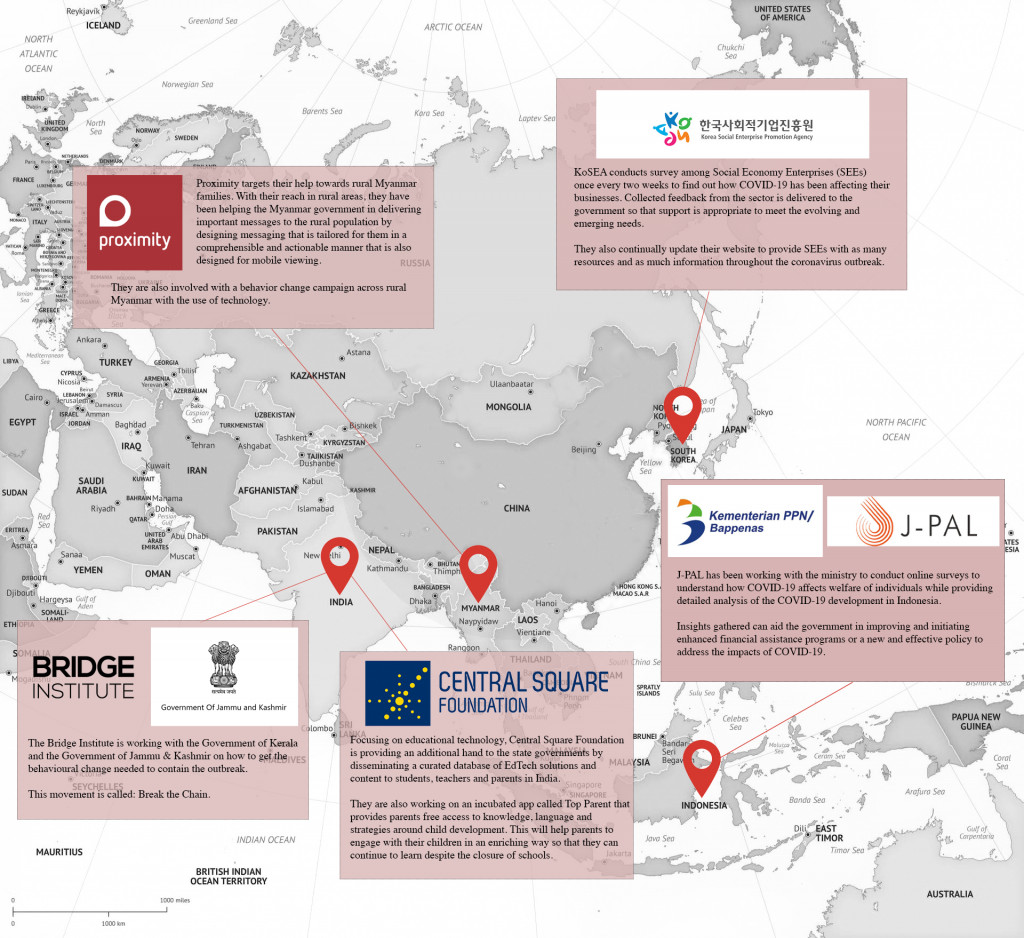2 min read
As the COVID-19 pandemic presents one of the most urgent and widespread global challenges today, it is also a defining moment; the efficacy of a country’s response reflects how well-coordinated efforts are across public, private, and people spheres in society. In the current scenario, we discuss how increased joint collaboration between public and private sectors can present plenty of benefits and drive resources to where it is most needed now.
Providing Innovative and Enhanced Public Services
A pandemic like COVID-19 exposes several gaps that cannot be met by governments alone. Governments may be constrained by tight fiscal budgets to invest further in public health.
Through public-private collaborations, actors in the civil society and private sector help to maximize information outreach and the effectiveness of existing public services. For example, not-for-profit organizations who hold immediate connections with some of the most vulnerable groups in the community are a crucial link in building awareness and empowering them with contextualised information. Through a collective effort, a unified message can reach the vulnerable groups so that they can continue to practice preventive measures and remain protected. On the other hand, businesses play an important role in mitigating the transmission and its adverse impacts through various means, such as implementing safety precautions and social distancing measures to safeguard employees’ wellbeing.
Competitive markets also constantly push private enterprises to innovate and improve their operational efficiency. Technology start-ups and companies may introduce technologies into public processes to provide more efficient public services for citizens during such a crucial time. In 2016, after South Korea had been hit by the Severe Acute Respiratory Syndrome (SARS) and Middle East Respiratory Syndrome (MERS) outbreak, KT Corporation launched the Global Epidemic Prevention Platform (GEPP). Using 5G and big data, the app identifies and sends warning messages to individuals who have visited an epidemic-affected country. This encourages potentially infected individuals to get tested, thereby reducing the risks of infectious diseases and enabling the government to collect and track data on health crises. In the current pandemic, South Korean corporations have also introduced high-tech solutions such as having body sterilisers installed at entrances to spray disinfectants on those entering the building and using drones to disinfect large public areas. These companies-led innovations have helped ramp up efficiency and minimise risk of transmission in the country.
Promotes Transparency and Dialogue
Social needs are constantly evolving during the pandemic, making it difficult for governments to keep abreast of numerous bodies of information while fighting a fast-moving virus at the same time.
Public-private partnerships are especially important in filling this gap to build trust, transparency and stronger mutual understanding. By providing a platform where cross-sector actors can engage with each other to address questions and share information can enable governments to gain access to crucial information, informing appropriate responses to support hard-hit enterprises and vulnerable groups. Through open and vibrant dialogues with various private players, resources and solutions can be suitably deployed to address the challenges of a pandemic. Mobilising and collaborating with the public and private groups not only encourages understanding but also helps align public issues with economic solutions for social benefit.
In response to the COVID-19 pandemic, various AVPN Members and Policy Partners are leveraging on cross-sector collaborations to lead more impactful solutions on the ground:
Now, more so than ever, governments and private enterprises need to come together to design innovative solutions to solve one of the greatest challenges of our time.



















